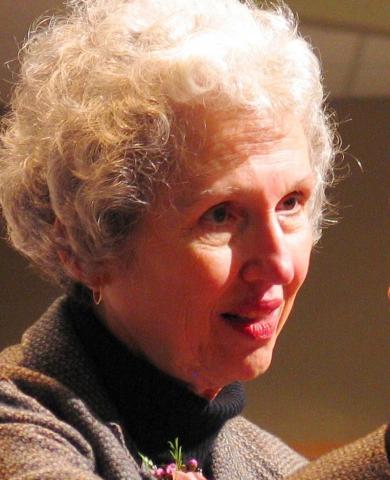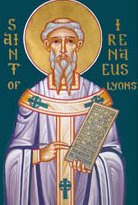
Phyllis Tickle was the founding editor of the religion department of Publishers Weekly and author of The Words of Jesus: A Gospel of the Sayings of Our Lord and The Great Emergence: How Christianity Is Changing and Why.
Posts By This Author
A Brief Observation on Your First Morning as President-Elect
Once Upon a Time There Was a House...
by Phyllis Tickle

Image via Ethan Daniels/Shutterstock
But the house and the occupant do share one commonality: they both will someday cease to be. Both will pass away. The occupant, who was not the house, will die; and the house, who was not the occupant, will burn down or molder down or be torn down or undergo some other such ending. All will be gone. All the pieces and parts of our lovely story gone into dust and ashes. All of them gone as pieces, anyway.
What is and always will be is what neither the house nor the occupant, as separate entities, ever was. What is and is ever to be is home — the joy-giving, rest-filled, and light-bearing presence within experience of the reality of "home." What is, is the translation of passing tangibles into the eternal. What is, is the fusing of occupant and house into one that is neither, but both together. What is, is a story about an occupant and a house that, in truth, is really a story resurrection bodies and the kingdom of God, as in "Thy Kingdom come, Thy will be done on earth as in Heaven."
Hyphenated Emergents

 I am going to preach this morning. Actually, in all probability I will be preaching by the time you read this. I will not be away from home in some alien pulpit, though, but at home in my own parish and among those whom I love. I won't preach, of course, [...]
I am going to preach this morning. Actually, in all probability I will be preaching by the time you read this. I will not be away from home in some alien pulpit, though, but at home in my own parish and among those whom I love. I won't preach, of course, [...]
New Life from an Old Hymn

 Christ Episcopal Church in Ponte Vedra, Florida, is the kind of church every pastor, rector, or preacher dreams of. It’s got children running about everywhere. It’s building yet another parking lot for reasons that are [...]
Christ Episcopal Church in Ponte Vedra, Florida, is the kind of church every pastor, rector, or preacher dreams of. It’s got children running about everywhere. It’s building yet another parking lot for reasons that are [...]
Talismans and Tokens

 I'm not much for talismans or religious tokens in the usual sense of those things. I wear around my neck every day of my life a chain with four emblems or medals on it. One is a Celtic cross given me on my 65th birthday by my favorite college chum from more than a half-century ago. One is [...]
I'm not much for talismans or religious tokens in the usual sense of those things. I wear around my neck every day of my life a chain with four emblems or medals on it. One is a Celtic cross given me on my 65th birthday by my favorite college chum from more than a half-century ago. One is [...]
Peach-Pit Philosophy

 There's a great deal of conversation these days about the nature of human consciousness and, as a related issue, about the true definition of "human" and how it can be best described. There's so much such conversation, in fact, that it is essentially impossible (especially [...]
There's a great deal of conversation these days about the nature of human consciousness and, as a related issue, about the true definition of "human" and how it can be best described. There's so much such conversation, in fact, that it is essentially impossible (especially [...]
Beer and Bible Night at Kudzu's

 One of the great recent joys of my life has been a thing called "Beer and Bible," which happens every other Tuesday night at a small neighborhood pub in Memphis called, appropriately enough, Kudzu's. Kudzu, our bar's namesake, is the South's most [...]
One of the great recent joys of my life has been a thing called "Beer and Bible," which happens every other Tuesday night at a small neighborhood pub in Memphis called, appropriately enough, Kudzu's. Kudzu, our bar's namesake, is the South's most [...]
The Indescribable Drama of Transfiguration

 Next Wednesday is the Feast of the Transfiguration. What that means is that next Wednesday is a major holy day for Christians like me who fall into what is commonly referred to as the "liturgical" category of the faith. That rather ponderous label is a [...]
Next Wednesday is the Feast of the Transfiguration. What that means is that next Wednesday is a major holy day for Christians like me who fall into what is commonly referred to as the "liturgical" category of the faith. That rather ponderous label is a [...]
Faithful Transitions
The Great Emergence
Every 500 years or so, the church—and the world—experience huge social, political, economic, and cultural shifts. What does this revolutionary evolution mean for the church?

Inga Locmele / Shutterstock
Rt. Rev. Mark Dyer, an Anglican bishop known for his wit as well as his wisdom, famously observes from time to time that the only way to understand what is currently happening to us as 21st-century Christians in North America is first to understand that about every 500 years the church feels compelled to hold a giant rummage sale. And, he goes on to say, we are living in and through one of those 500-year sales.
While the bishop may be using a bit of humor to make a point, his is nonetheless a deadly serious and exquisitely accurate point. Any usable discussion of the Great Emergence and what is happening in Christianity today must commence with a discussion of history. Only history can expose the patterns and confluences of the past in such a way as to help us identify the patterns and flow of our own times and occupy them more faithfully.
The first pattern we must consider as relevant to the Great Emergence is Bishop Dyer’s rummage sale, which, as a pattern, is not only foundational to our understanding but also psychologically very reassuring for most of us. That is, as Bishop Dyer observes, about every 500 years the empowered structures of institutionalized Christianity, whatever they may be at that time, become an intolerable carapace, or hard shell, that must be shattered in order that renewal and new growth may occur. When that mighty upheaval happens, history shows us, there are always at least three consistent results or corollary events.
First, a new, more vital form of Christianity does indeed emerge. Second, the organized expression of Christianity that up until then had been the dominant one is reconstituted into a more pure and less ossified expression of its former self. As a result of this usually energetic but rarely benign process, the church actually ends up with two new creatures where once there had been only one. That is, in the course of birthing a brand-new expression of its faith and praxis, the church also gains a grand refurbishment of the older one.
Bible Stories Your Mother Never Told You -- and One to be Told Differently
A Crash Course in Jesus Studies
The Great Experiment and the Great Commandment
Preachers, Poets, and Storytellers
Forbidden Revivals and the Birth of Bluegrass
Pagans and Patriarchs
A Warm Welcome to Summer Sundays
The People Of The Books
The written word isn't going away anytime soon, and religion's effect on the publishing industry is part of the reason.
 A Sunday or two ago, I made mention of -- more to the truth, wrote a whole
A Sunday or two ago, I made mention of -- more to the truth, wrote a whole  Welcome to summer. Officially and totally summer in the Northern Hemisphere. It's certifiably summer by every means of our accounting, be it psychological or [...]
Welcome to summer. Officially and totally summer in the Northern Hemisphere. It's certifiably summer by every means of our accounting, be it psychological or [...] Officially speaking and despite what we may all be thinking about the June heat wave the nation is plowing its way through right [...]
Officially speaking and despite what we may all be thinking about the June heat wave the nation is plowing its way through right [...]